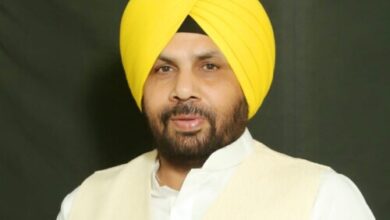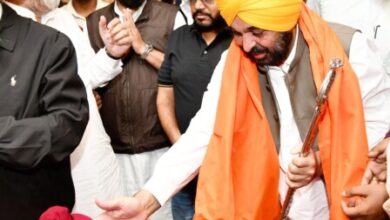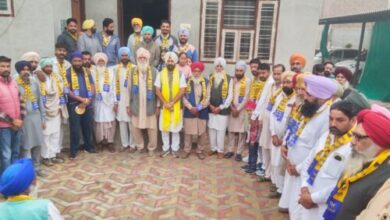No person should be deprived of ones right to health and life, Justice Iqbal Ansari on human rights dimension of tobacco control

Strategic Institute for Public Health Education and Research organised a National Consultation on the Human Rights Dimension of Tobacco Control, a tool to advance the WHO FCTC implementation along with Resource Centre for Tobacco Control in Department of Community Medicine and School of Public health, PGIMER Chandigarh. The consultation was also supported by The Union (International Union Against Tuberculosis and Lung Disease). Honourable Justice Iqbal Ahmed Ansar, Chairperson, Punjab Human Right Commission was the Chief Guest for the important consultation. Various public health experts like Dr Mira Aghi, Behavioural Scientist; Dr Amit Yadav, The Union; Prof. Dr Pankaj Chaturvedi, Deputy Director, Tata Memorial Centre and HOD Dept. of Head and Neck Surgery, TMH, Mumbai; Mr Ranjit Singh, Advocate Supreme Court; Radhika Shrivastav, Director – Health Promotion, HRIDAY Secretariat of the Healthy India Alliance (India NCD Alliance) and Dr Rana J Singh, Deputy Regional Director (Tobacco and NCD Control), USEA (The Union), New Delhi deliberated on the human rights dimension of the tobacco control. Dr Rakesh Gupta, President, SIPHER and Prof Dr Sonu Goel, Dept. of Community Medicine and School of Public Health, PGIMER, Chandigarh/Director E-RCTC moderated the consultation. Mr Arun Verma, Director of Finance and Operations, SIPHER hosted the consultation and briefly introduced the issue. Justice Ansari said that the deliberations were indeed highly informative for him. Speaking on the framing of strict laws for eradicating tobacco control there is a need to understand the perception of the law enforcing agencies on the human rights violation by the tobacco industries and tobacco consumers. We need two kinds of support- legal support and judicial support.

Judicial support comes in the light of legal support, if you do not have the provision in the law-making smoking an offence then judiciary cannot stop it. “The World Health Organisation (WHO) reports that tobacco use and exposure to second-hand smoke kills more than 7 million people each year. By seeking to tackle the tobacco epidemic, the WHO Framework Convention on Tobacco Control (WHO FCTC) is not only a tool to combat the adverse effects of tobacco on the right to health, but also to protect the very human right to life,” said Dr Sonu Goel in his brief address. Speaking on violation of women’s human rights by the tobacco industry, Dr Mira Aghi said that women are misinformed about the health implications and are unaware of the fact that smoking affects their reproduction system. Tobacco advertising and actions of the tobacco industry are a barrier to the rights to the health of women and prevent women from enjoying the highest attainable standard of health. Also second-hand smoke has significant health implications for women, especially in the reproductive age group. She further pressed for making more stringent laws to ban smoking in public and workplaces. “We need to explain to the stakeholder the link between fundamental human rights violation due to tobacco use and the right to tobacco control. States and their citizens must be empowered with knowledge, resources and ability to claim their rights and resist the tobacco industry’s ‘corporate social responsibility’, ‘corporate social investment’ or outright bribery that can inhibit realizations of such rights. Hence, Human rights-based approach to tobacco control is perhaps an important strategy in current circumstances and in times to come,” noted Dr Rana J Singh. Dr Amit Yadav while deliberating on National and International Human Rights obligations, raised the fact that the tobacco industry is violating human rights for their commercial vested interests and Supreme Court in 2001 clearly said that exposure to second-hand smoke is a violation of the fundamental right to life. Mr Ranjit underlined the role of the judiciary in tackling the issue related to Human Rights violation. Dr Pankaj Chaturvedi shared his personal experience with cancer patients who were tobacco victims added his valuable comments to the discussion saying that over 30 crore people are addicted or a slave to the tobacco industry. He added that any civilized society on its own merit cannot welcome a product, which says on its package that it causes cancer. Dr Radhika explained the role of the civil societies and public health organisations in tobacco control and asserted that we need to highlight the aspect of human rights. She added that there is a need to generate a stronger human narrative for tobacco control.




